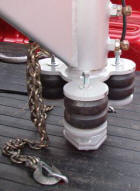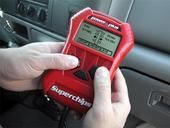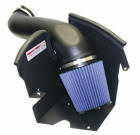Propane safety tips for RVers
CNW Group
VANCOUVER, B.C. - With summer here, many RVers are gearing up for family road trips in their recreational vehicles including campers, trailers and motor homes.
The British Columbia Safety Authority (BCSA) and the Motor Vehicle Sales Authority of BC (VSA) are reminding RV users to get their propane systems checked by certified technicians before heading out on the road.
"We want to ensure RV users have a safe summer on the road," said Wayne Lock, the gas safety manager for the BCSA. "Propane equipment should be checked and maintained at least once every two years and every time an RV is transferred to a new owner."
In an RV, propane is commonly used for furnaces, fridges, water heaters, barbecues and stove ranges.
|
|
Whether renting or buying a new or used vehicle, RV users should look for a blue BC Safety Authority decal confirming that a certified technician has completed a comprehensive propane system safety inspection and has made the necessary repairs.
RVs can be brought in for propane safety checks to recreation vehicle shops that are registered with the Safety Authority; these shops are located throughout the province.
The VSA requires all dealers to ensure vehicles are safe before being sold, and supports the BC Safety Authority in advising motor dealers and consumers that any vehicle offered for sale with a propane device or storage tank must display a valid blue inspection decal.
Many VSA dealers have operating permits issued by the BC Safety Authority allowing them to install and inspect propane products, and are required to employ certified technicians to ensure gas appliances are leak free and operate safely.
"Our customers' safety is a primary concern," said Earl Manning, VSA's Director of Licensing. "We are working with the BC Safety Authority to ensure all registered dealers perform regular propane safety checks and display valid inspection certificates and decals."
As with all other fuels, propane should be handled with care and RV users should know what to do in case of a leak or other emergency. Propane gas has a smell like rotten eggs or boiling cabbage and is heavier than air, so when checking for leaks, be aware it can gather in low-lying areas.
Ignition of propane gas within an enclosed space can result in explosion, and it can be ignited by many sources including pilot lights, open flames, smoking materials, electric sparks, and static electricity.
More Propane Safety Tips:
-
Familiarize yourself with all safety precaution notices posted in your RV.
-
Identify all emergency shut-off valves and develop basic emergency procedures for everyone traveling in the RV.
-
If you think you smell propane, get everyone out of the unit and close the supply valve on the propane containers.
-
Have everyone leave the RV and get medical attention if anyone shows symptoms of carbon monoxide (CO) poisoning (headaches, nausea, dizziness, drowsiness, confusion, impaired judgment, loss of manual dexterity).
-
When using a propane stove or oven, open a vent or window and turn on the range hood fan to remove moisture and combustion products (which may contain CO).
-
Never use stove burners or ovens to heat your RV. They are designed for attended cooking only.
-
Don't use portable propane camping equipment in your RV (e.g. camp stoves, barbecues, lanterns, catalytic converters, radiant heaters).
-
Before entering a gas station, turn off all burners, pilot lights, appliances and automatic ignition devices. Turn off the vehicle engine and have everyone leave the RV before refueling.
-
Transport propane containers in the secured upright position.
-
Never use, store, or transport propane cylinders or liquid fuels in the passenger space or living area of your RV.
-
Don't transport or use propane containers that are damaged, show signs of corrosion, have been exposed to fire, or appear to be leaking.
-
When buying propane equipment, always ask if the product is certified for Canada, as many products sold outside Canada do not comply with Canadian safety standards.
|
|







